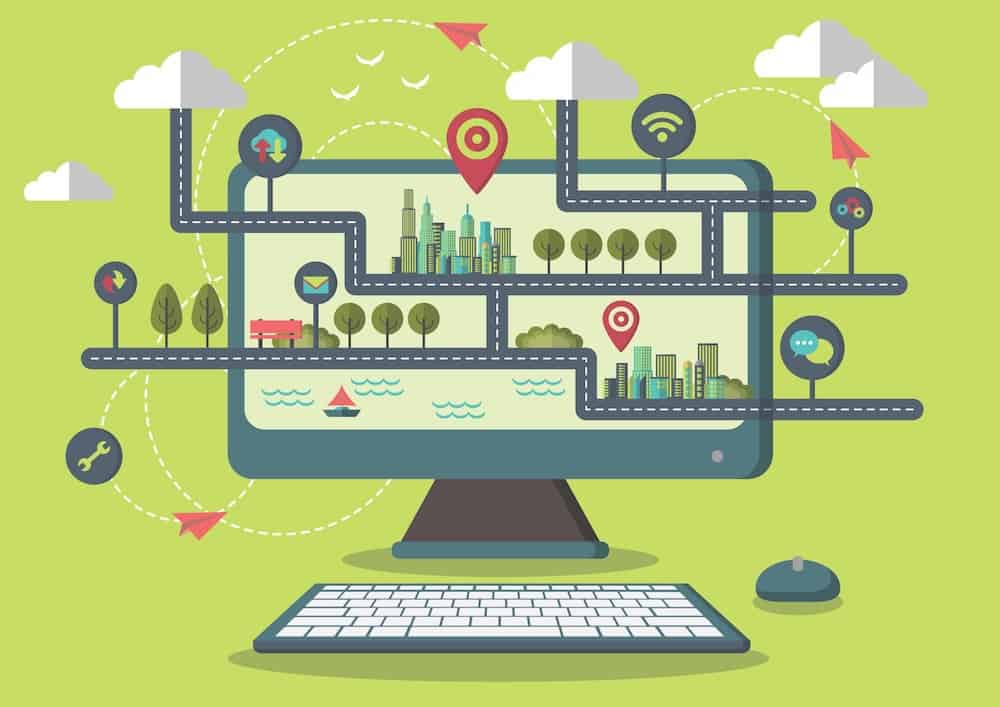
Something we do know is that technology has progressed dramatically over the years, and the trajectory shows no sign of letting up. Some of us remember a time before email and cell phones (yes, there was such a time!), and how dramatically those two pieces of technology altered the way we worked.
The New York Times recently reported that even with all of these technological advances, productivity is lower. Even though your smartphone allows you to get almost instantaneous answers to the most obscure questions, it also allows you to waste hours scrolling through Facebook or looking for the latest deals on Amazon.
And for several years, economists have asked why all that technical wizardry seems to be having so little impact on the economy. So maybe new ideas need to be incorporated to increase productivity in the healthcare sector, bringing work in to the world of mobile.
Technology obviously has a huge role in the future of work, many pieces have been written about that. But most of the pieces are about robots in factories, or HR practices for millennials or economic changes in corporate structures. Certainly, robots will have a place, but only a fraction of the work done each day will be impacted by them, and there are many more dramatic ways technology can alter work.
When we start defining work, the most obvious category split is between physical and mental work. Within physical, the split is servicing things or people (i.e. medical equipment, patient care, EMR). Within mental it can include creating, recording, analyzing, communicating, providing expertise, collaborating (training, certifications, problem solving, knowledge sharing). And in the current world, there is a whole category called “digital labor”, meaning repetitive or low skilled labor on digital tasks.
How will all of the work and idea exchange between these internal and external people flow efficiently? Perhaps more importantly, how will it be managed in a confidential, yet free-flowing way? In many ways, that is the real trick, connecting people fluidly, but securely, when they are in multiple internal and external locations. And in today’s healthcare world, they are often on the go, or have limited internet access, so they need a seamless experience between web and mobile worlds.
The world is a complex scenario of distributed contributors both inside and outside of your organization. The challenges mark the importance of information sharing which is key to successful collaboration. But this is just a start toward meeting the unique ideals of the new sharing economy. Bolting a collaborative networking platform onto a legacy company only solves half the problem. And doing so without a mobile strategy destines the platform to inefficient usage.
In the current world this scenario requires using multiple tools – some secure, some less so – and seamless efficient communication is a challenge. Information doesn’t always get to the right people in a timely manner, and team members who join later struggle to get up to speed quickly. All leading to a lot of late nights and working weekends.
Why aren’t we more efficient? With all this technology and an ability to leverage decentralization and efficiencies, our economy should be triple what it was 10 years ago or more.
Imagine a world where all of the communication across all devices and methods could be completed securely yet efficiently, with a consistent experience, linking multiple team mates and partners. And all internal and external team members have the tools they need to communicate and share all types of content. When the best and brightest can communicate seamlessly, yet securely, from anywhere in the world, productivity will increase and economies will prosper.
That world is coming soon. And as it expands, it will definitely alter the future of work for healthcare…for the better.
Denise Hayman-Loa is CEO of Carii, an award-winning collaboration platform. She has over 30 years of strategy and business building, technology, sales and management experience while working at prominent firms such as Goldman Sachs, Morgan Stanley, Hamilton Lane and as a management consulting partner at Ernst & Young. At Goldman Sachs, in 1996, Ms. Hayman-Loa founded an early Internet B2B platform delivering risk management technology, data and services to clients, such as Microsoft’s Treasury division, and started the Equity Divisions’ initiative to support institutional clients. In the early part of her career, Ms. Hayman-Loa managed complex technology projects and teams for front office financial services applications. A frequent public speaker and a published author, she has demonstrated expertise. Hayman-Loa has non-profit board experience as a co-founder of a Private Equity Women’s Investor Network and as Board President at Appel Farm Arts & Music Center.







